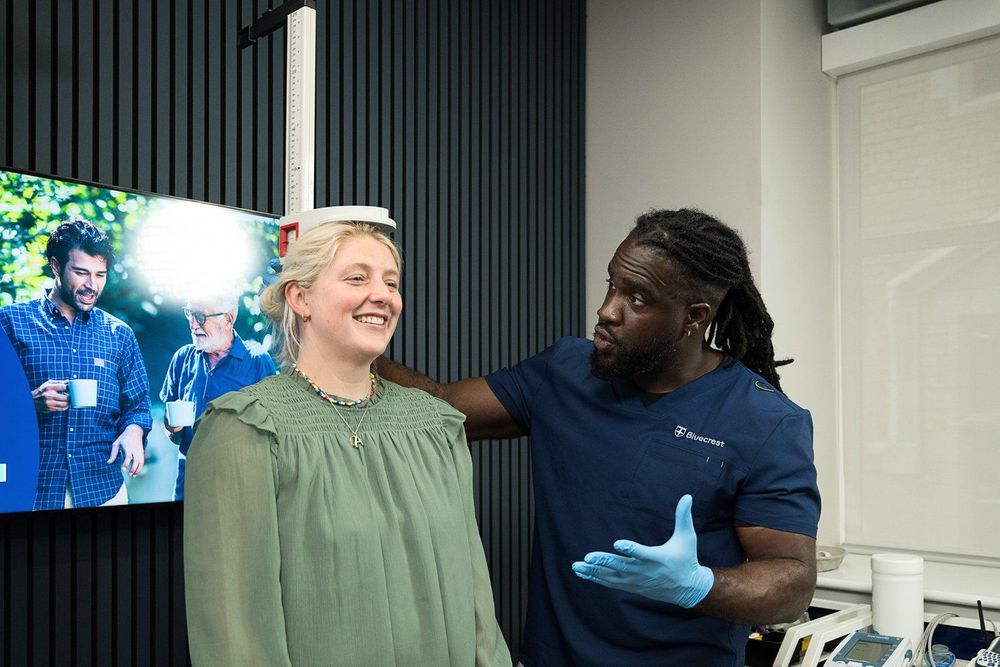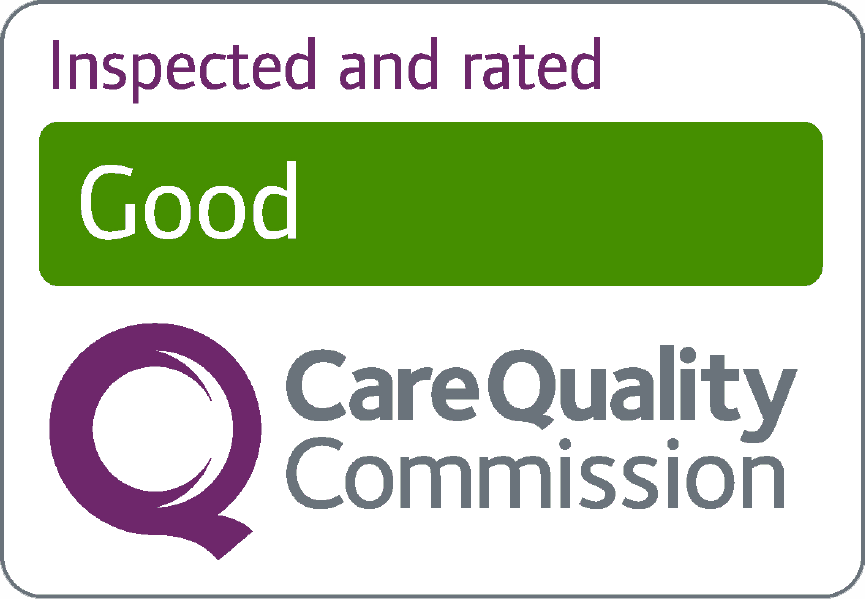
How do you check for thyroid problems?
It’s not always obvious when your thyroid is struggling. One day you’re feeling fine, and the next you’re exhausted, gaining weight or losing sleep with no clear explanation. Thyroid issues can be easy to dismiss or mistake for something else, which is why many people live with them undiagnosed for months, even years.
So how do you actually check for thyroid problems?
While a blood test can confirm whether your thyroid is under- or overactive, there are several important steps you can take to identify whether something might be wrong, from understanding symptoms and risk factors to paying attention to subtle physical changes in your body.
Here, we break down what to look for, who’s most at risk and how a simple thyroid function test can help you get the answers you need.
First, what does your thyroid do?
The thyroid is a small, butterfly-shaped gland located at the front of your neck, just below your Adam’s apple. It produces hormones that regulate your metabolism - the rate at which your body uses energy. These hormones, called thyroxine (T4) and triiodothyronine (T3), affect nearly every system in your body.
That includes:
-
Your heart rate
-
How quickly you burn calories
-
Body temperature regulation
-
Digestion
-
Menstrual cycles
-
Energy levels and sleep
-
Mood and mental clarity
Even slight imbalances in thyroid hormone levels can cause noticeable effects, but because these symptoms are common and non-specific, thyroid problems often go undetected. Below, we explore five key ways to check whether your thyroid might be out of balance.
Step 1: Know what symptoms to look for
Thyroid issues generally fall into two categories:
-
Hypothyroidism – when your thyroid doesn’t produce enough hormones
-
Hyperthyroidism – when it produces too much
Each presents differently, but they can also overlap, especially early on.
You might have an underactive thyroid (hypothyroidism) if you:
-
Feel constantly tired or sluggish
-
Gain weight despite no change in your eating habits
-
Struggle to stay warm or often feel cold
-
Have dry skin or thinning hair
-
Experience low mood or brain fog
-
Have irregular or heavy periods
-
Suffer from constipation
-
Notice a slower heart rate
You might have an overactive thyroid (hyperthyroidism) if you:
-
Lose weight unexpectedly
-
Feel anxious, jittery or overly alert
-
Have a racing or irregular heartbeat
-
Struggle with sleep
-
Sweat more than usual, even when inactive
-
Experience lighter or missed periods
-
Have shaky hands or muscle weakness
-
Notice more frequent bowel movements
If any of these sound familiar, especially if you’ve experienced multiple symptoms for several weeks, it’s a good idea to investigate further.
Step 2: Consider your risk factors
Thyroid problems can affect anyone, but some groups are more at risk than others. Being aware of these factors can help you decide whether to check your thyroid, even in the absence of strong symptoms.
You're more likely to develop a thyroid condition if you:
-
Are female - women are up to 10 times more likely to experience thyroid disorders
-
Are over the age of 40
-
Have a family history of thyroid problems
-
Have other autoimmune conditions (e.g., type 1 diabetes, coeliac disease, rheumatoid arthritis)
-
Are pregnant, recently postpartum or going through menopause
-
Have been treated for thyroid issues or received neck radiation in the past
Some people also experience temporary thyroid changes after illness, periods of intense stress or significant weight loss.
Step 3: Pay attention to your body over time
One of the most effective ways to check for thyroid issues is simply to track how you’re feeling over time. Thyroid dysfunction is rarely dramatic overnight, it’s more often a gradual shift that becomes easier to spot when you zoom out.
Keep an informal diary or note app where you can track:
-
Energy levels (e.g. always tired by mid-afternoon?)
-
Mood and sleep patterns
-
Weight changes
-
Menstrual irregularities
-
Changes to skin, hair or nails
-
Bowel habits
-
Heart rate or palpitations
Noticing a pattern, or a cluster of symptoms, can help you decide whether to get tested, and gives your GP a clearer picture to work from.
Step 4: Check for visible signs
Although it’s not diagnostic, looking in the mirror may also offer clues. If you notice:
-
Swelling at the base of your neck
-
A visible lump or asymmetry when swallowing
-
Puffiness in your face
-
Thinning eyebrows (especially outer edges)
-
Dry, flaky skin or brittle nails
These could be signs that your thyroid isn’t functioning as it should. These kinds of changes are often subtle and gradual, but worth noting if they persist. For more information, read our guide on how to check your thyroid at home.
Step 5: Get a thyroid function test
The only way to confirm a thyroid issue is with a blood test that measures your hormone levels. At Bluecrest, our Thyroid Function Test checks:
-
TSH (Thyroid Stimulating Hormone): This is often the first marker to become abnormal. High TSH usually indicates an underactive thyroid; low TSH can signal an overactive thyroid.
-
Free T4: This shows how much thyroxine (T4) is available to your body.
-
Free T3: Some tests also measure triiodothyronine (T3), especially when hyperthyroidism is suspected. Please note: Bluecrest Wellness’ standard thyroid test does not include T3 or thyroid antibodies.
-
Thyroid antibodies (optional): These can detect autoimmune conditions like Hashimoto’s or Graves’ disease.
The results provide a clear picture of how well your thyroid is functioning and whether further steps are needed.
Why checking your thyroid matters
Left untreated, thyroid issues can affect everything from your cardiovascular health and bone density to fertility and mental wellbeing. But with the right treatment, often just a daily tablet, most people feel significantly better within weeks.
Whether you’re trying to get to the bottom of unexplained symptoms or just want peace of mind, checking your thyroid is a simple but powerful step toward better health.
Bluecrest makes it easy to check your thyroid
At Bluecrest Wellness, our Thyroid Function Test is designed to give you fast, reliable answers. With easy booking, flexible appointments and lab-quality results, it’s never been easier to understand what’s going on with your health.
You’ll receive:
-
A comprehensive test of key thyroid hormones
-
A personalised Results Report
-
12 months’ access to a 24/7 GP helpline
-
Convenient testing locations nationwide
If you feel like something’s not right, don’t ignore it. A quick thyroid test could bring the clarity and reassurance you need.
Need help? Call free on
to speak to one of our team.

Anna Jones
Chief Nursing Officer, Bluecrest
Dr Martin Thornton
Chief Medical Officer, Bluecrest



























